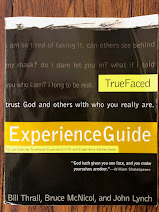The story...
Many people are uncomfortable with the message "I love you." There's a lot "packed" into the word "love" and it can obviously be misunderstood. What do they mean and how does the love message receiver respond? Ideally, would we be able to say "I love you" to most of the people attending the only church in town? What does that kind of love look and feel like? What's the source? Is it something you feel, a measure of the quality of the relationship, or an experienced gift of God? Is it a verb (something that you do) or a noun (something that you can fall in and out of)?
Before I was born, C.S. Lewis wrote the book The Four Loves and presented it on a radio broadcast in 1958. I've listened to this broadcast on my CD's many times. He provided four helpful definitions of love, from four Greek words, used to describe that one English word - LOVE. Four types of love in a nutshell: Storge is a normal kind of affection or familiarity that's missed when it's not present; Philia is like friendship; Eros is the romantic type of love reserved for the "couples" who are absorbed in each other; Agape is the unconditional type of love similar to the love God offers us through His Son.
Will we truly find "agape" love within the only church in town? It requires vulnerability with the ever present risk of being hurt, rejected, or even wounded with a broken heart. Yes, the only church in town would be characterized as one where the members were free to express agape love.
Just for today...
"In the past I focused on anyone but myself . . . trying to control the disorder, discomfort, and lack of safety and security of my own childhood." Hope for Today (p. 39).
"It is unrealistic to expect everyone to like me." Courage to Change (p. 39)
"You shall love the LORD your God with all your heart, and with all your soul, and with all your mind." "You shall love your neighbor as yourself." Matthew 22:37 (NASB)
"Risked love, Heart broke - He lifted up, Formed Us anew." Am I a Poet?



No comments:
Post a Comment